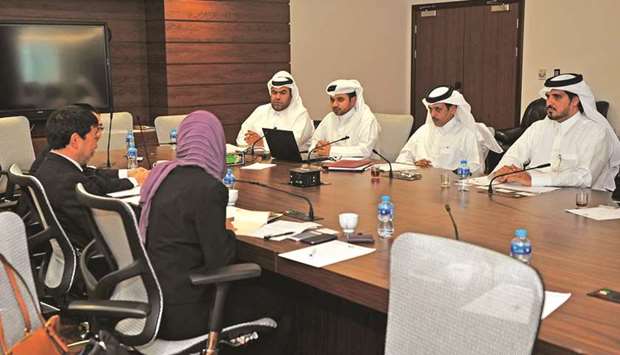The General Customs Authority (GAC) discussed the general practices of Qatar on the protection of Intellectual Property Rights (IPR) in the customs field during a meeting held at its headquarters with a Japanese economic delegation headed by Japan External Trade Organisation Managing Director, Masami Ando.
During the meeting, representatives of the GAC provided the Japanese delegation with all the necessary information regarding the protection of the intellectual property rights of Japanese products in Qatar in the framework of many inquiries made by the Japanese delegation regarding the criteria for inspecting goods, and means of customs verification of the application of these standards, and inquiring about the violations of intellectual property rights prevalent in Qatar and the mechanisms of internal co-operation between customs and government institutions that are directly related to registration procedures on import and export operations.
The topic of intellectual property protection and the methods and regulations adopted by Qatar in protecting the Japanese products in the local Qatari market was emphasised as one of the most important issues raised during the meeting.
The Japanese delegation was briefed on the co-operation between the GAC and the Ministry of Commerce and Industry, through which the employees of the Authority in the ports can access the registered trademarks and their conformity with the goods received to the port. In case of disagreement, the matter is referred to the ministry to review the subject.
Head of operations department in GAC, Bakheet al-Abhaq, welcomed the Japanese delegation, stressing the importance of this visit as it aims to develop mechanisms to protect the intellectual property rights of the various products and goods that are imported to Qatar.
Director of Operations and Risk Analysis Department at the GAC, Jassim al-Rumaihi, stressed that the authority attaches great importance to the protection of intellectual property rights for all goods, pointing out that there are specialised courses offered to employees working at customs outlets of Qatar.
He reviewed a number of statistics of the seizures in 2018, and the actual practices carried out by the authority to study these records and use them as much as possible in the analysis of various risks surrounding the process of intellectual property rights protection.
In addition, al-Rumaihi provided an overview of Al Nadeeb electronic customs clearance system, which is considered to be the most important electronic database which facilitates the procedures for releasing goods after ensuring that they meet the customs standards imposed. This system has the speed, accuracy and ability to detect the manipulation of internationally registered trademarks.
During the meeting, Japan External Trade Organisation Managing Director, Masami Ando, briefed the organisation and its 74 co-operating brand protection companies operating in the Middle East region.
The officials also exchanged questions with the Japanese delegation on the types of the training courses on intellectual property rights protection, the legal and electronic regulations in the customs of Japan and other detailed topics related to the subject.

The General Customs Authority (GAC) holding talks with the Japanese economic delegation.
